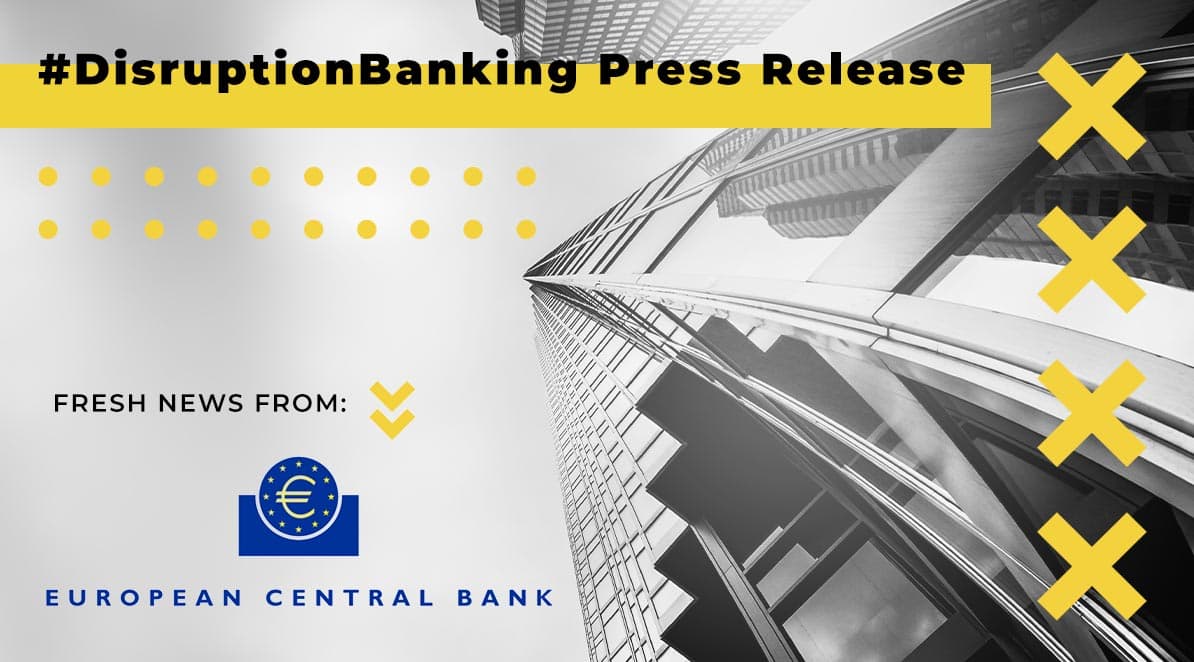Last year Bloomberg published a story called ’Why Private Credit is Booming and Banks are Fighting Back.’ The story highlights how when interest rates hiked in 2022, banks were lumbered with many unprofitable loans they couldn’t sell. Private credit funds stepped in. Today some of these funds are as large as some of the funds that banks can offer.
One of the firms that has benefitted from private credit is Macquarie Capital, part of Macquarie Group. In March 2025 Bill Eckmann, Head of Principal Finance and Private Credit, Americas at Macquarie Capital shared:
“Private credit has become a fast-growing asset class that’s taken a permanent share of the corporate lending market, with growth being driven by both secular shifts and repeat business from the expanding borrower base.”
In his post, Eckmann emphasized how Macquarie Capital’s Principal Finance team, which focuses on providing flexible capital and debt solutions across North America, Europe and Australia, and its private credit book has grown by more than 50 percent over the last 3 years.
Macquarie Group’s Asset Management division recently expanded its presence in the U.S. CLO market. Collateralized loan obligations or CLOs are a type of private credit alongside direct lending, mezzanine debt, distressed debt, real estate private debt, specialty finance, infrastructure debt, and asset-based finance. Bloomberg reported how the firm sold its first U.S. CLO earlier this month.
Why is Private Credit Booming?
Private debt, or private credit, is the provision of debt finance to companies from funds, rather than banks, bank-led syndicates, or public markets. According to BlackRock’s 2025 Private Markets Outlook, there is $1.6 trillion in global private debt AUM. Published in December 2024, the report highlights how “private debt is taking on more fundings previously executed in the public markets.” It also explains that private credit forms only part of the alternative asset management business globally.
Companies are staying private longer. This trend is highlighted by how the number of publicly listed companies traded on U.S. exchanges has fallen drastically since there were over 8,000 companies listed in 1996. According to Statista, there were 2,425 U.S. companies listed on the Nasdaq, whereas the NYSE had a total of 2,132 U.S. and international companies listed, as of the end of 2024. High interest rates and recent volatility in the stock markets mean companies are less interested in going public. Middle-market firms are also comfortable using private credit for financing.
Retail and institutional investors are more used to private credit and the attractive yields it can offer. iCapital, the financial technology platform democratizing alternative investments, counts leading alternative asset manager, Blackstone, amongst its investors since 2018. And there have been numerous further alternative asset managers dipping into capital markets.
To add to the problem, banks are increasingly cautious with their capital. Factors include regulatory pressures like Basel III, which forces banks to maintain higher liquidity and reserve levels. Banks are lending to larger, safer businesses than before. Default risks are more common in private debt markets, for instance with real estate loans, which banks are trying to avoid. Finally, private lenders are often faster and more flexible with financing solutions.
In other news, Citi announced a $25 billion private credit, direct lending program with Apollo Global Management in September 2024. Citi wrote how the program is designed to enhance access “for corporate and sponsor clients to the private lending capital pool, at a scale and size which can provide funding certainty in strategic transactions.”
Alternative Asset Managers Embrace Capital Markets
At the same time as banks are moving away from some of their loan portfolios, alternative asset managers are stepping up. Blackstone, Ares Management, Blue Owl Capital, and KKR & Co. are some of the firms embracing capital markets.
Other notable companies in the space include Apollo (mentioned earlier), Golub Capital, HPS, and Oak Hill.
Private Credit Billionaires https://t.co/VqqX2QoYsx pic.twitter.com/bCPQyBNAxs
— The Icahnist (@TheIcahnist) February 22, 2025
We investigated a few of the companies to give our readers an idea about the level of ambition these firms are showing today.
Ares Management
Ares Management was founded in 1997 by a veteran team of investment professionals. It was created to pursue investment activities in leveraged loans, high yield bonds, private debt, private equity and other types of investments.
In January this year Ares Management raised €30 billion for its’ European direct lending strategy. This news came on the back of a $34 billion U.S. senior direct lending strategy that the firm announced last July.
Ares Management has also been increasing its exposure to AI-related tools. Last February the firm acquired BootstrapLabs, which enhanced Ares’s AI strategy. Ares recognized that BootstrapLabs was among the first U.S.-based venture capital firms to invest solely in AI technology startups. This expertise has helped form the foundations of the Ares AI & Innovation Group which will seek to build proprietary AI solutions.
In February this year Ares teamed up with TIFIN AMP to use AI to cut the noise in Alts distribution. The move helps the Ares Wealth Management Solutions division of Ares reduce “random acts of marketing” by using AI. Ares’ AI-driven platform helps financial advisors offer private credit solutions to clients who banks no longer serve.
KKR & Co.
KKR was founded in 1976 by Henry Kravis and George Roberts. In 2006 the firm launched its capital markets business. By 2024, KKR officially joined the S&P 500.
In April this year, KKR announced the signing of a definitive agreement under which investment funds managed by KKR will acquire OSTTRA, a leading provider of post-trade solutions for the global OTC market, from CME Group and S&P Global. OSTTRA has established itself as a critical infrastructure provider in the post-trade space, processing over 80 million trades monthly.
KKR launched its capital markets unit in 2006, making it one of the earlier movers among nonbanks to compete with Wall Street lenders to arrange equity and debt financing. The unit has generated about $6 billion in fees for KKR since it was started.
Blackstone
Blackstone needs little introduction. The firm proudly states how it is the world’s largest alternative asset manager with $1 trillion AUM listed on its’ website. The company has a substantial capital markets division today. More importantly it has been making waves in markets traditionally outside of its areas of expertise.
One such example is the Blackstone Private Credit Fund or BCRED. Launched in January 2021, the goal of BCRED is to redefine the way income-focused individual investors calibrate their fixed income portfolios. According to Reuters, BCRED had $81 billion of AUM on March 31 this year compared with $45 billion three years ago.
Then there is Blackstone’s investment into iCapital mentioned earlier in this story.
Some have suggested that BlackRock wants to be like Blackstone. Larry Fink, BlackRock’s CEO, used to work at Blackstone in the 1980s. In October last year, BlackRock acquired Global Infrastructure Partners or GIP. It allowed the leading asset manager to consolidate over $100 billion of private markets AUM. GIP had previously joined forces with Blackstone in joint bids for companies. Will BlackRock be as keen to work with Blackstone in the future?
Blue Owl Capital
One of the newest entrants into the alternative asset management space, Blue Owl Capital, formed in 2020 via a merger, is a private credit leader. Last week the firm announced the final close of its $7 billion digital infrastructure fund. But that’s not why you need to know about Blue Owl Capital. There are lots of other reasons.
Foremost among them is how the company is focusing on capital destined for founders of industry-leading technology companies. The company’s portfolio includes Airbnb, Bolt, SpaceX, and Robinhood.
From $0 to $251 Billion in Four Years.
— The Icahnist (@TheIcahnist) February 13, 2025
The fastest-growing Private Equity firm isn’t buying companies.
It’s buying other PE funds.
While PE firms fight for deals, Blue Owl is silently taking over the industry itself.
This will change Private Equity forever 👇🧵 pic.twitter.com/nNspdkGI4a
Blue Owl Capital has hit news headlines due to its dramatic growth. The company reached $251 billion AUM as of December 31, up 52% year-on-year from 2023. This year it also followed Blackstone’s lead by creating its own private credit fund targeting wealthy investors. Expect to see more news about Blue Owl Capital as private credit markets continue to grow.
Are Banks Missing Out?
The private credit market might seem unattractive to banks, but there is increasing signs of banks working together with alternative asset managers. Questions about the regulation of the private credit market are being asked. Banks have all the internal controls needed to protect capital, alternative asset managers often don’t.
One such case arose just last month when JP Morgan and Citi were saddled with $2.2 billion in debt for an acquisition linked to a Canadian auto parts company. The two banks will have to use their own balance sheets to fund the Apollo Global Management-backed ABC’s acquisition.
Today the regulator may not be looking at this, but tomorrow things might change. This change may mean other alternative asset managers will need to create banking structures, just like Macquarie Group already has.
The space is evolving. There is certainly more disruption ahead. And where there is disruption…
Author: Andy Samu
#PrivateCredit #CapitalMarkets #Blackstone #BlueOwlCapital #AresManagement #AlternativeInvestments #KKR #ArtificialIntelligence
See Also:
Apollo Global Management: Why Investors Are Not Worried About Latest Lawsuit | Disruption Banking
How Private Equity Is Driving Europe’s Economic Recovery | Disruption Banking
What challenges are Korea’s private equity firms facing? | Disruption Banking

















